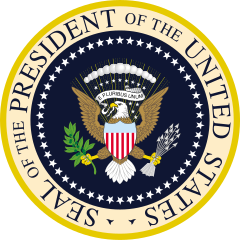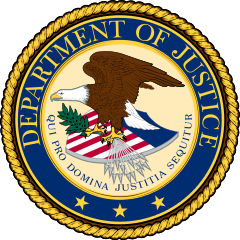
Nestled within the Biden administration’s recent, sweeping Executive Order on Promoting Competition in the American Economy is a small, rather oblique paragraph that has garnered little attention to date. Appearing as Section 5(d), it urges the Attorney General and the Secretary of Commerce to “consider whether to revise their position on the intersection of the intellectual property and antitrust laws,” in order to “avoid the potential for anticompetitive extension of market power beyond the scope of granted patents, and to protect standard-setting processes from abuse…” And specifically, to revisit a position taken in 2019 by three agencies they supervise – the Department of Justice (DOJ), Patent and Trademark Office (PTO) and National Institute of Standards and Technology (NIST).
This short statement signals a significant shift in policy on the proper balance between the rights of the owners of patents that would be “necessarily infringed” by the implementation of a standard and the rights of those buildings product that comply with a standard. Its importance to the administration is evidenced by the fact that presidents before Donald Trump rarely made public requests of the DOJ.
The request seeks the reversal of several important policy changes promoted by Makan Delrahim, the Assistant Attorney General for the Antitrust Division of the DOJ appointed by Donald Trump in September 2018. Those changes related to so-called “standards essential patents,” or SEPS, and the obligations accepted by the owners of such patents when they participate in the development of standards. Specifically, the owners agree to license such patents on “reasonable and non-discriminatory”, or RAND terms.
While standards setting organizations (SSOs) universally impose such obligations, they do not define what pricing and other terms will satisfy a RAND obligation, leaving ample room for litigation when the parties to a potential licensing transaction disagree.
Traditionally, the U.S. regulatory agencies and courts supported the proposition that the implementers of standards needed to be protected against the refusal of SEP owners to honor their RAND obligations – a practice referred to as “patent hold-up.” Delrahim surprised many when he took issue in a presentation on March, 2018 with that position, ignoring existing court cases and referring to the “so-called ‘hold-up’ problem.”
The real problem, he stated, lay instead in the potential for “patent hold out” – the refusal of a standards implementer to agree to the RAND terms offered by a SEP holder. And if parties disagreed in either direction, he stated, the dispute should be addressed under contract law and not antitrust law. Delrahim formalized this position on December 7, 2018, by withdrawing the DOJ’s support of a 2013 policy statement jointly issued by the DOJ and the USPTO, which warned of the risks of SEP hold-up.
Delrahim also believes that if the parties to a SEP licensing negotiation cannot come to terms, the owner of the SEP should be able to obtain an injunction that would prevent the infringer from selling its product in the market place rather than only having the right to seek damages. The difference is crucial, as a SEP owner can gain greater and swifter leverage through injunctive relief than through long, drawn out litigation.
Delrahim based his convictions on his belief that inventors need stronger rights to protect their inventions in order to ensure that US innovation does not falter. He eventually succeeded in persuading the USPTO and NIST to agree to join the DOJ in a new public statement. The result was the issuance on December 19, 2019 of a Policy Statement on Remedies for Standards-Essential Patents Subject to Voluntary F/RAND Commitments (FRAND is an equivalent term, referencing “fair, reasonable and non-discriminatory terms) – the policy that the Biden administration is now inviting his Attorney General and the Secretary of Commerce to revisit (the PTO and NIST are agencies within the Department of Commerce).
Notable for its absence in the 2019 policy statement was the FTC, which continues to support the traditional view that patent hold-up is a significant concern, addressable under antitrust law, reflecting a rare instance of the two regulators holding different opinions on the same point of law.
The split between the two agencies had earlier been underlined when the DOJ took an opposing position from the FTC in May of 2019 in an action brought by the FTC against Qualcomm, the chip design company (Delrahim, a former lobbyist for Qualcomm, recused himself from this action).
In a final highlight of the Delrahim position, the DOJ, in an unprecedented move, on September 10, 2020, issued a reversal of a position it had taken in 2015 in a Business Review. That letter had been issued to the IEEE, an international SSO, and indicated that the DOJ would take no action if the IEEE adopted certain rules relating to injunctive relief in connection with SEP enforcement. In the update letter, the DOJ indicated that its prior letter did not reflect its current views, and invited the IEEE to reconsider the practices in question.
With the change of administration in January, many in the standards world have been waiting to see whether the DOJ would revert to its prior position. The answer has been a long time coming but now seems clear.
Delrahim stepped down on January 20, 2021, and on February 8, Richard A. Powers was named Acting Assistant Attorney General for the Antitrust Division. But those serving in acting positions rarely take their departments in new directions and the Biden administration has yet to nominate a permanent successor.
However, on June 15, Lina Khan was sworn in as the new Chair of the FTC. Khan has long been an advocate of a new way of approaching antitrust enforcement, focusing less on the impact on consumers and more on the potentially adverse effects of allowing single companies to dominate market niches, particularly in the high tech sector.
The Khan appointment rightly received great attention, signaling a change in direction regarding antitrust policy. And now this small paragraph nestled among 71 other initiatives in the new Biden antitrust mandate underlines that commitment in a way that may have significant impact on the licensing of SEPs in particular, and on the ability of technology incumbents to assert their power more generally.
If you would like to receive an email alert of future blog posts, please complete the sign-up form in the right hand column.
